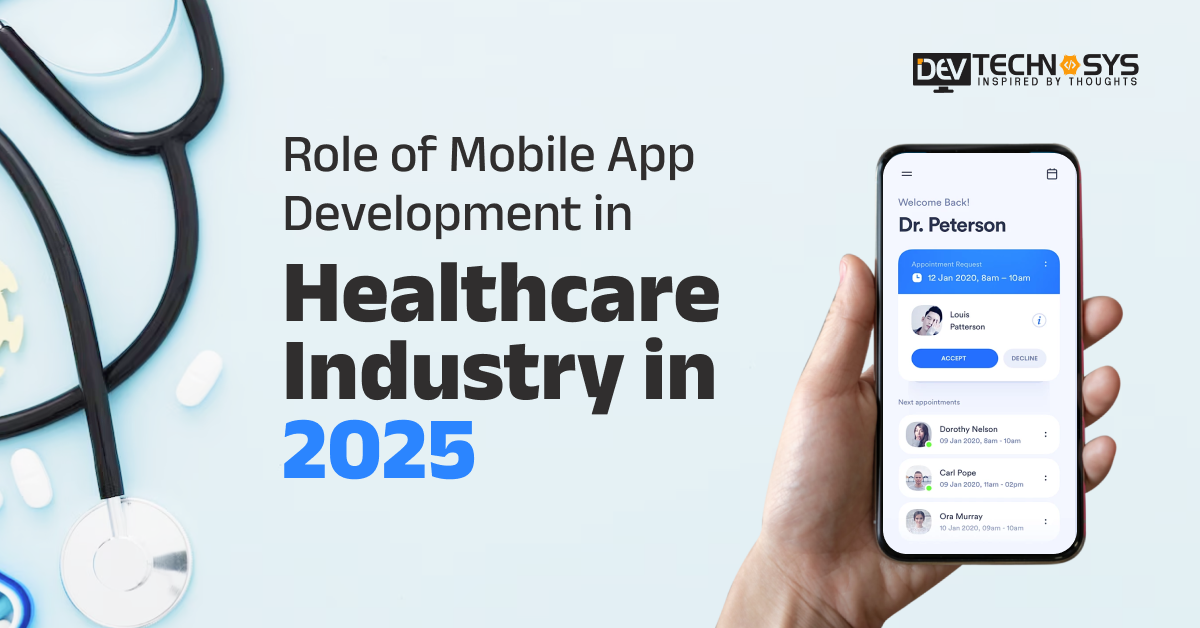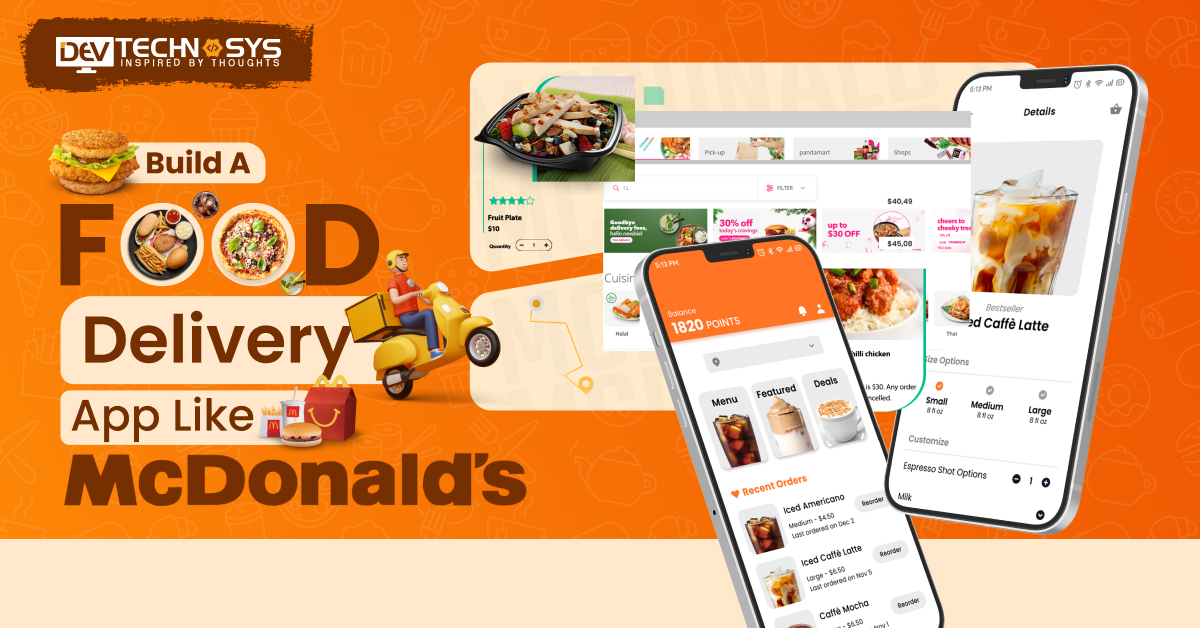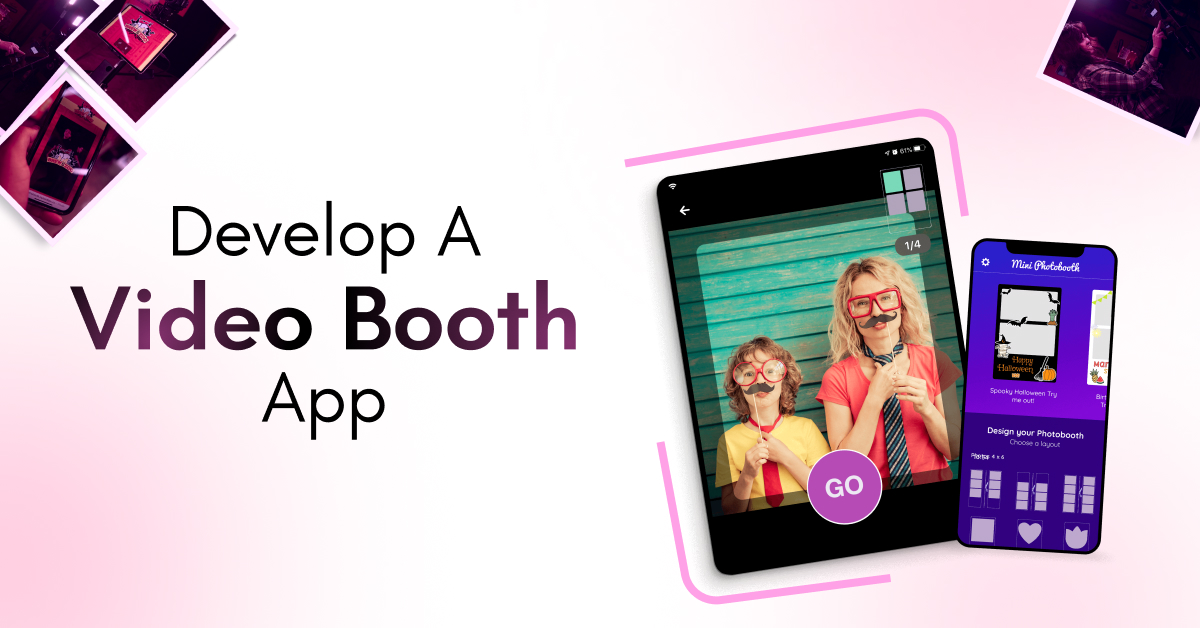Healthcare industry is one of the major sectors that influence people at a larger scale. The role of mobile app development in healthcare is quite important to transform traditional systems into modernized tech gizmos. Digitization of various domains including healthcare, created multiple opportunities for businesses and common people to become successful.
It is important to move forward by keeping small and precise targets. The development of healthcare mobile apps in 2025 must be your current goal for establishing an online business and generating constant revenue that can provide support in future.
Let us discuss major related terms and logics to understand the role of mobile app development in healthcare industry in 2025. But, first observe some market stats.
Market Stats for the Healthcare Industry
- In 2025, the digital health market is expected to generate $197.90 Billion in revenue.
- With a predicted market volume of $258.30 Billion by 2029, revenue is anticipated to expand at 89% CAGR annual rate between 2025 and 2029.
- It is anticipated that the average revenue per user (ARPU) will reach $135.30.
- In contrast to other countries, the United States will create the majority of revenue $54,000 Million in 2025.
- With a total sales value of $122 Billion in 2025, Digital Treatment & Care will be the largest market.

Market Trend
- The global digital health market is expected to reach $639.4 Billion by 2026, growing at the rate of 5% CAGR from 2021 to 2026.
- Mobile health apps are projected to generate $102.7 Billion in revenue by 2023.
- Telemedicine adoption has surged, with 76% of healthcare organizations planning to expand their telehealth services in 2025.
Growth Factor
- Increasing smartphone penetration and rising demand for remote Healthcare IT Solutions are major drivers.
- COVID-19 accelerated the adoption of digital health technologies, with virtual consultations growing by 154% in 2020.
- Rising healthcare costs push both patients and providers to embrace cost-effective digital solutions.
Business Sustainability
- The digital health market is becoming more sustainable with investments in AI and blockchain, enhancing data security and efficiency.
- Partnerships between healthcare providers and tech companies are contributing to long-term business models.
- Over 60% of healthcare executives believe digital health will provide competitive advantages and drive business growth.
Key Healthcare Mobile App Trends in 2025
Healthcare mobile apps are expected to become increasingly more significant in changing the healthcare landscape as 2025 approaches. These apps are developing to provide more individualized, effective, and easily accessible care as a result of technological improvements.
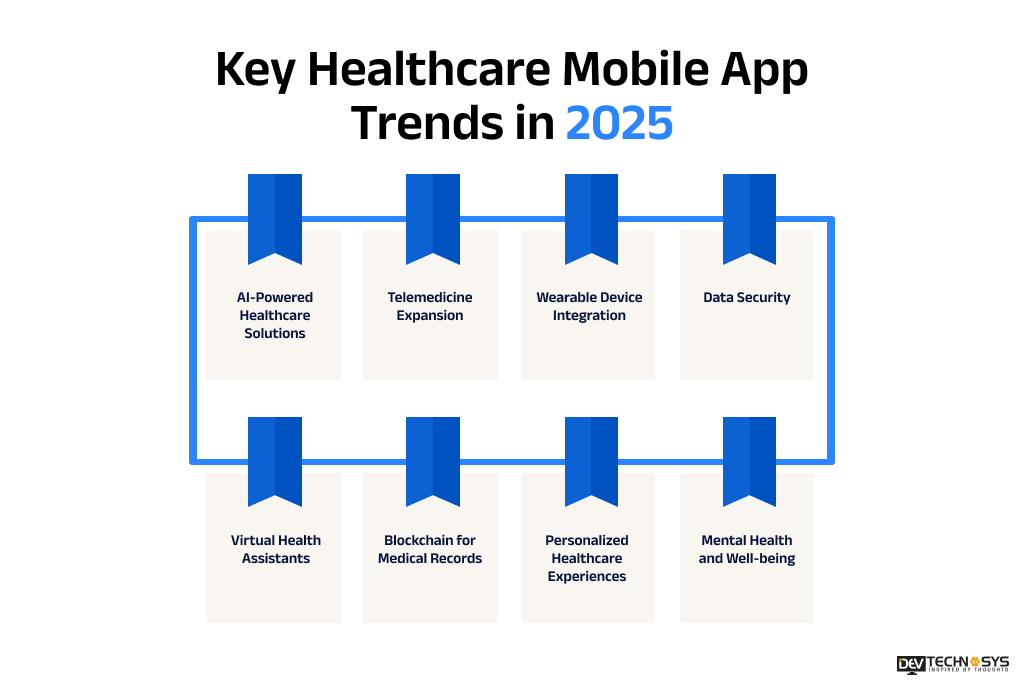
1. AI-Powered Healthcare Solutions
Using AI In Healthcare can revolutionize various applications by offering individualized treatment plans and predictive analytics.
- Uses data analysis to enhance early diagnosis and treatment.
- Employs personalized health insights to improve patient engagement.
- Reduces the workload on healthcare providers by automating repetitive tasks.
Impact: AI will improve outcomes and decision-making for both patients and medical providers.
2. Telemedicine Expansion
Apps for telemedicine will keep expanding, providing convenient remote care and virtual consultations.
- Improves patients’ access to healthcare in isolated locations.
- Lowers medical expenses by cutting down on in-person visits.
- Makes it possible to manage chronic conditions and follow up more quickly.
Impact: Healthcare will become more accessible and efficient for all demographics thanks to telemedicine.
3. Wearable Device Integration
Wearable technology and mobile apps will work together to continuously track health indicators including heart rate, blood sugar, and sleep habits.
- Gives access to real-time data for improved health monitoring and care.
- Investment in hybrid app development can assist people in better managing long-term illnesses.
- Tracks everyday wellness practices to improve patient results.
Impact: Wearable technology will make it possible to monitor health continuously and identify possible problems early.
4. Data Security
To protect data, healthcare apps will use sophisticated authentication and encryption techniques.
- Protects patient information from hacks and intrusions.
- Increases patient and healthcare provider trust.
- Guarantees adherence to laws governing healthcare, such as HIPAA.
Impact: More people will use healthcare applications if data security is improved.
5. Virtual Health Assistants
By responding to inquiries, setting up appointments, and providing tailored guidance, AI-powered virtual assistants will support patients in managing their health.
- Makes healthcare more accessible by offering round-the-clock help.
- Decreases the administrative strain on medical professionals.
- Supplies patients with personalized health recommendations and reminders.
Impact: you can hire mobile app developers to implement virtual assistants that will improve patient care, which will improve engagement and health results.
6. Blockchain for Medical Records
Electronic health records (EHR) will be managed and stored securely using blockchain technology, guaranteeing data transparency and integrity.
- Offers tamper-proof records to improve the security of data.
- Enhances compatibility between various healthcare systems.
- Minimizes fraud and guarantees patient data authenticity.
Impact: Blockchain will simplify and improve the security and accessibility of healthcare data administration.
7. Personalized Healthcare Experiences
A healthcare app development company should install data analytics in healthcare apps to provide highly individualized wellness advice, treatment programs, and health guidance.
- Presents individualized treatment based on your health information.
- Improves patient involvement by attending to specific medical requirements.
- Enhances patient compliance with recommended therapies and lifestyle modifications.
Impact: Improved patient satisfaction and health outcomes will result from personalized encounters.
8. Mental Health and Well-being
Apps for healthcare will increasingly address mental health, offering tools for stress reduction, mindfulness exercises, and therapy.
- Conducts mental health evaluations and virtual therapy.
- Delivers mindfulness activities and guided meditation.
- Proposes confidential help, which lessens the stigma associated with mental health.
Impact: Integration of mental health will lessen the worldwide burden of untreated mental health conditions.
Different Types of Healthcare Apps
There are many different types of healthcare apps, and each one is made to meet particular requirements in the healthcare system. These apps improve patient care and administrative efficiency, ranging from those that track health parameters to those that enable virtual consultations.
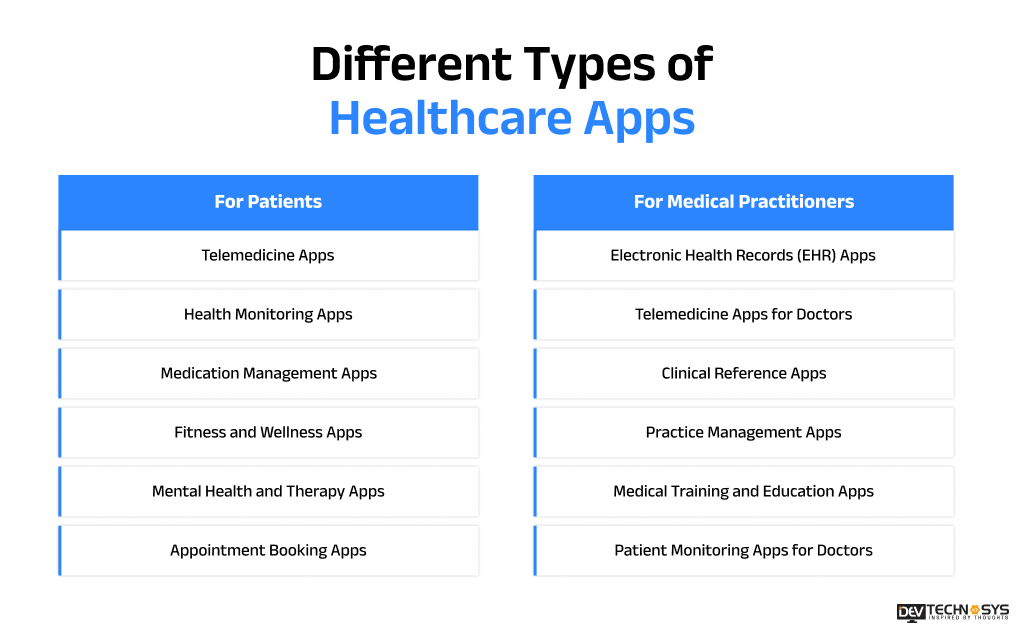
1. For Patients
Telemedicine Apps
With the use of these apps, patients can have remote consultations with doctors via messaging, phone, or video. They improve access to medical treatment, particularly in underserved or rural areas.
- Provides both general and specialized care consultations virtually.
- Lowers patient travel expenses and wait times.
- Allows for remote follow-up appointments and second opinions.
Health Monitoring Apps
These applications give users access to real-time health data by monitoring vital signs and chronic illnesses. They frequently connect to wearable technology for ongoing observation.
- Monitors blood pressure, heart rate, and blood sugar levels.
- Notifies users and medical professionals when readings are abnormal.
- Aids individuals in controlling long-term illnesses including diabetes and high blood pressure.
Medication Management Apps
Patients can use these applications to create medication reminders and keep track of their medicines. By knowing the mobile app development cost you can easily build such apps to influence the lifestyle of your audience.
- Notifies users to take their prescriptions on time.
- Gives information about side effects and drug interactions.
- Aids in ordering medications and getting prescription refills.
Fitness and Wellness Apps
These applications promote healthy habits by measuring sleep, physical activity, and general wellness. For real-time data, many integrate with wearables.
- Keeps track of daily exercise regimens, steps, and calories burned.
- Offers individualized exercise programs according to user objectives.
- Gives a comprehensive perspective on wellness by integrating with health applications.
Mental Health and Therapy Apps
From self-help tools to access to certified therapists, these apps provide assistance for managing mental health. They support mental health, stress reduction, and mindfulness.
- Offers tools for mental health and virtual therapy sessions.
- Include stress-reduction methods, meditation, and mindfulness exercises.
- Provides mental health exams and mood tracking.
Appointment Booking Apps
These applications make it simple for patients to plan and coordinate medical appointments. Businesses can hire dedicated developers who can make these apps to simplify the process of locating available healthcare providers and send out reminders.
- Enables users to schedule consultations with medical professionals.
- Notifies and reminds users of impending appointments.
- Allow consumers to view and select the most suitable time periods.
2. For Medical Practitioners
Electronic Health Records (EHR) Apps
EHR applications streamline documentation and enhance patient care by enabling practitioners to see and edit patient records instantly.
- Provide immediate access to the medical records of patients.
- Minimizes administrative errors and paper-based recordkeeping.
- Improves the cooperation between medical teams.
Telemedicine Apps for Doctors
Without requiring in-person visits, these apps allow doctors to track patient progress and provide remote consultations. By contacting a mobile application development company you can also create similar app clones.
- Allows for audio, video, and text calls during patient consultations.
- Provides safe file sharing for medical records and prescriptions.
- Aids in expanding the patient base, especially in rural locations.
Clinical Reference Apps
Medical practitioners can quickly access evidence-based clinical recommendations, medication information, and treatment regimens with the help of these applications.
- Includes current medical texts and clinical references.
- Contains interaction checks and drug dosage calculations.
- Saves time in practice by lowering the need for ongoing research.
Practice Management Apps
The administrative aspects of a medical practice, including scheduling, billing, and patient communications, are managed with the use of these apps.
- Simplifies calendar management and appointment scheduling.
- To implement features like insurance claims and payments, you should hire healthcare app developers.
- Increases productivity when performing administrative duties.
Medical Training and Education Apps
Healthcare workers can learn about new therapies, medical research, and procedures using these apps.
- Provides medical education certifications and online courses.
- Includes having access to case studies, research papers, and journals.
- Uses simulations and interactive tools to enhance learning.
Patient Monitoring Apps for Doctors
These applications enable real-time remote monitoring of patients’ health information, including vital signs and indicators of chronic conditions. It is good to find the right healthcare app development cost to develop similar platforms.
- Allows for ongoing monitoring to facilitate the early identification of possible health problems.
- Makes it easier to receive remote care for long-term illnesses like diabetes and heart disease.
- Sends out real-time notifications when a patient’s condition changes significantly.
Top 10 Role of Mobile App Development in Healthcare Industry
Applications for healthcare are transforming the delivery of medical services by increasing patient engagement, accessibility, and efficiency. These applications incorporate a number of elements that enhance patients’, physicians’, and healthcare providers’ overall healthcare experiences.
1. Patient Health Monitoring
Vital indications including blood pressure, heart rate, and glucose levels can be continuously monitored with healthcare apps. Real-time sharing of this data with healthcare practitioners can improve monitoring. Reminders for medication and follow-up appointments are also available to patients.
2. Telemedicine and Virtual Consultations
Doctors and patients can confer virtually via video calls or messaging. Features of telemedicine increase access to healthcare, particularly in rural areas. Additionally, it improves convenience by cutting down on wait times and the necessity for in-person appointments.
3. Appointment Scheduling
Patients may easily book and manage visits with the help of healthcare applications. Reminders and notifications guarantee on-time visits and lower no-show rates. So, businesses should invest in Android app development helping doctors to effectively manage their patient load and availability.
4. Electronic Health Records (EHR) Integration
Centralizing patient medical data, lab results, prescriptions, and therapies is made easier with EHR integration. The complete medical record of a patient is readily accessible to healthcare providers. Additionally, this feature lowers administrative errors by improving accuracy.
5. Prescription Management
By enabling physicians to deliver prescriptions straight to pharmacists, apps lower the possibility of drug errors. In addition to receiving refill reminders, patients can view their prescription history. Additionally, it improves adherence to recommended therapies and helps prevent drug interactions.
6. Fitness Tracking
In order to monitor fitness parameters like steps, calories burned, and sleep patterns, numerous healthcare apps interface with wearable technology. This information offers important insights about general health. It can assist physicians and patients in making well-informed decisions.
7. Educational Resources
Apps for healthcare frequently offer instructional materials, such as articles, videos, and advice on how to treat particular ailments. By knowing more about their diseases, patients are empowered to take control of their health. Additionally, it encourages preventive care and well-informed decision-making.
8. Privacy Features
Healthcare apps must prioritize protecting patient data. To safeguard private medical data, you should use iPhone app development services to employ secure login procedures and encryption. Adherence to laws such as HIPAA ensures that user data is managed securely and ethically.
9. Push Notifications
Automated reminders for appointments, medicine, and wellness activities are sent by healthcare apps. This guarantees that patients follow their treatment regimens and never overlook a crucial assignment. Additionally, it promotes healthy practices and routine examinations.
10. Payment and Insurance
Apps frequently have functions that let users pay for medical services straight from the app. They can also verify coverage details and follow insurance claims. Both patients and healthcare providers experienced less administrative strain as a result of the billing process being streamlined.
Benefits of Healthcare Mobile App Development
By increasing accessibility, effectiveness, and patient engagement, mobile app development role in healthcare provides a revolutionary method of providing care. Real-time monitoring, individualized care, and smooth communication between patients and medical professionals are all made possible by these apps.
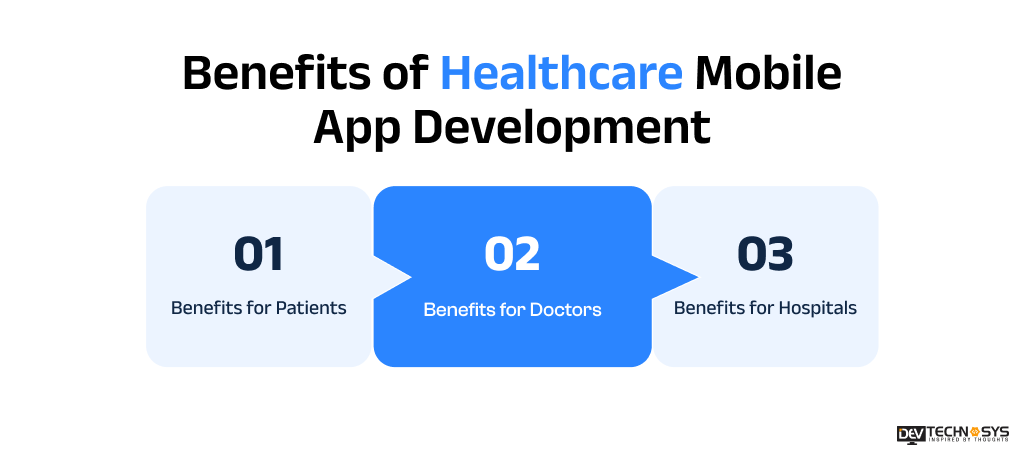
1. Benefits for Patients
Through convenient access to medical information and prescription tracking, the benefits of Blockchain in the healthcare industry enable people to manage their health from any location. These applications encourage proactive health management, increase patient engagement, and improve convenience.
- Real-time health data tracking and access to medical records.
- Make appointments and have remote consultations with physicians.
- Get tailored health advice and medication reminders.
2. Benefits for Doctors
Through mobile apps, physicians can remotely monitor health measures, access patient records, and conduct prompt telemedicine consultations. This improves decision-making, expedites their workflow, and raises the standard of patient care.
- Instant access to treatment plans and patient histories.
- Remotely monitor patients and conduct virtual consultations.
- Schedule appointments and cut down on administrative work.
3. Benefits for Hospitals
By streamlining administrative duties like scheduling, billing, and patient data maintenance, mobile apps help hospitals. It is important to know the benefits of Cloud Computing in healthcare department to raise overall patient satisfaction, decrease errors, and increase operational efficiency.
- Simplify the procedures for scheduling, billing, and patient intake.
- Enhance care coordination by gaining centralized access to data.
- By providing convenient digital services, you can increase patient satisfaction.
Conclusion!!
For every class of business investor, it is significant to know the role of mobile app development in healthcare to create classified solutions. You can find what can be achieved from the below points:
- Consistency and market compliance in the healthcare domain.
- Unified solutions to irresistible problems through mobile application development.
- Enhance the medical and pharmacy sector by implementing dedicated support systems separately.
- Capture different clinics and hospital centers to offer your services.
At the current time, your whole motive is to inhale and process the role of mobile app development in healthcare industry in 2025. So, it will be easy to increase business productivity and gain an edge over other market players.
FAQs
1. How are Mobile Apps Improving Patient Care in Healthcare?
Patients can use mobile apps to monitor their health in real time, giving medical providers information for individualized therapy. They improve communication and guarantee prompt follow-ups. Better patient outcomes and satisfaction result from this.
2. What are the Benefits of Telemedicine Via Mobile Apps?
- Gives patients immediate access to medical specialists.
- Lessens the strain on medical facilities and cuts down on wait times.
- Increases access to medical treatment in isolated or underprivileged communities.
3. How do Mobile Apps Help in Remote Patient Monitoring?
Hospital visits are decreased by using mobile apps to monitor chronic illnesses continuously. App-enabled wearable technology gathers health data in real time. Physicians can monitor patients from a distance and modify treatment regimens as necessary.
4. What Role do Mobile Apps Play in Streamlining Hospital Management?
Administrative chores like billing and appointment scheduling are automated by mobile apps. They also make it simple for medical professionals to obtain patient records. This increases effectiveness and lowers errors in the provision of healthcare.
5. How are Mobile Apps Ensuring Data Security in Healthcare?
- End-to-end encryption is used by mobile apps to safeguard private patient data.
- Data privacy is guaranteed by adherence to healthcare laws like HIPAA.
- Only authorized workers are able to access data thanks to secure authentication techniques.
6. What Impact do Mobile Health Apps Have on Healthcare Costs?
- Cut down on needless ER and hospital visits.
- Make preventive care possible by managing and detecting illnesses early.
- Reduced operating expenses for healthcare providers through efficiency and automation.
